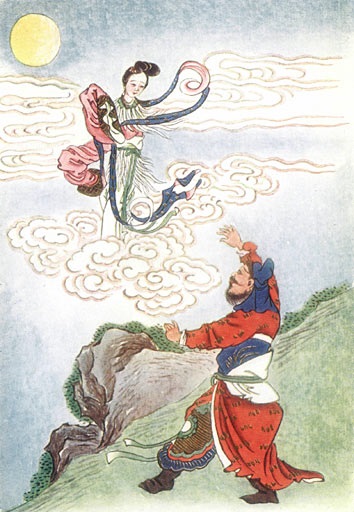Written by: Ayesha Amir
Posted on: September 26, 2024 |  | 中文
| 中文
Celebrations of the Moon Festival, also known as the Mid-Autumn Festival.
The Chinese Moon Festival, which also goes by two other names, namely The Moon Cake Festival or the Mid-Autumn Festival, is a celebration of the coming of fall under a full moon. The Chinese calendar employs a special system of including both the lunar and solar calendars, but the Moon Festival is typically held on the fifteenth of the eighth month of the Chinese lunar calendar. It is such that around this stipulated time of the year, the moon is the fullest and its brightest. This year, the Chinese Moon Festival fell on 17th September Tuesday, and was celebrated with the same zeal and fervor as that of the Chine New Year celebrations. In traditional Chinese settings, the festival is an event for moon sighting and worshipping, as well as celebrating the harvesting of crops.
The festival’s origins can be traced back to the rituals of making sacrifices to the moon, and that is said to have been as far back as the 11th century BC during the Zhou dynasty, which makes the festival’s history almost three thousand years old! The traditions and rituals surrounding the moon festival have evolved over time. The tradition of eating mooncakes, for example, came about in the 13th century BC. Mooncakes are a delicacy specific to the festival itself, and holds a symbolic history of their own. They are a sweet treat made of dough, filled with duck yolks, red bean paste, or lotus seed paste. They are often molded into beautiful shapes, which makes them almost too pretty to eat!

A painting depicting Houyi helplessly looking at his wife Chang'e flying off to the Moon after she drank the elixir.
The celebrations of the Chinese Moon Festival in Pakistan, Lahore saw a fun event held at the Lahore University of Management Sciences (LUMS) organized by its Chinese Centre for Legal Studies on Saturday 21st September. The Moon Festival celebration was opened by a speech from Mr. Du Yue, the Director of the Political Section at the Consulate General of the People Republic of China in Lahore, who graced the event with his presence as the chief guest. He surprised the guests by welcoming them in perfect Urdu, which was very welcome. Along with him, Mr. Wang Yaqiang attended the festival celebrations; he is a respected member of the Chinese Consulate who has contributed to strengthening the cultural ties between China and Pakistan. Other notable guests included Dr. Saeed Shafqat, Director of the Centre for Public Policy and Governance (CPPG) at Forman Christian College University (FCCU), Lahore, and Rana Sajjad, Founder & President of CIICA, Advocate of the Supreme Court of Pakistan, and Fellow of The Chartered Institute of Arbitrators (CIARB).
The opening was followed by the most anticipated event of the evening, the drum circle. A vibrant drum circle was held for all present guests to take part in. It was led by a facilitator who would lead the rhythm and instruct the participants to follow a certain beat. People of all ages, adults and children alike, shared a similar excitement for this activity. Everyone sat in a circular formation around the central courtyard’s fountain, with small drums held between their legs in excited anticipation. Once the drum beating began, the air was electric with everyone’s rhythms and clangor. In an endearingly surprising turn of the already multicultural event, the participants engaged in Punjabi and Sindhi beats along with regular drumming.
This was followed by yet another exciting aspect of the evening, the food stalls featuring authentic Chinese delicacies! The event organizers had the pleasure of hosting Ho Yuk Bing, a valued member of the Chinese International Academy and Chinese Overseas Association, who helped in setting up these stalls. The guests were served the most delectable Chinese dumplings and noodles. The dumplings were steamed and also slightly fried for a crisped bottom, and filled with a savory meat and spices mixture that made for a perfect, chewy and a hearty bite! Also served were Chinese noodles, closely resembling Lo Mien, which had sautéed vegetables to provide a perfect crunch. Once the drum circle and the food rounds were over, the guests mingled and exchanged pleasantries. The night ended on a pleasant note in which some interesting connections were made by the guests. The Moon Festival celebration at LUMS stands as a symbol of promoting significant cultural bonds within the Pakistani and Chinese communities.
You may also like: